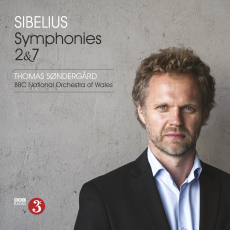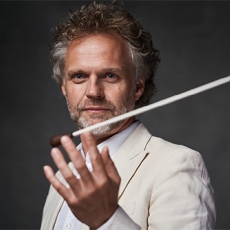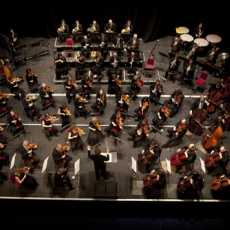Thomas Sondergard - Sibelius: Symphonies 2 & 7 - Robert Music Blog
I hesitated for some time to purchase this new recording of
the Sibelius second and seventh symphonies on Linn Records from Thomas
Sondergard and the BBC Wales Orchestra because it got panned in a Gramophone
magazine review - badly trashed, in fact, the review opening with the word
"disappointing".
There was a time
when a classical recording literally lived or died on a Gramophone review. But
my take on this new Sibelius is almost exactly the opposite of that review, and
may be symptomatic of just how far the influence of Gramophone - and the quality
of some reviews, from the current crop of 'reviewers', has fallen. It is quite
true that a recording, and interpretation, can have widely differing impacts on
people, accounting for a wide range of differences in reviews. However, there
are also cases - more so today, and much more so in online reviews - where a
review is just plain dead wrong, and cannot be excused by simply saying
'different people will hear it differently'. There ARE some absolutes, and this
is a good case of that.
The Gramophone
review claims muddy sound, particularly the timpani in the 7th, and recessed,
reverberant sonics overall. The reviewer must have been listening through a
1930's horn gramophone while situated in a closet. That is simply not true, the
acoustic is far from distant, it is quite clear and upfront, with amazing inner
detail and nuance.The 24/192 sound is exemplary; demonstration quality in every
respect. The dynamics on display here remind me that, in the analog era,
conductors were quite conscious when recording of the limitations of the vinyl
record in reproducing dynamics - true ppp would be obscured by surface noise,
true fff caused the needle to jump out of the groove. To some extent this
carried into the CD era. Now we are hearing recordings that have no such limitations.
I am no longer
looking for "definitive" performances. For the most part, those have
already been done long ago and are easily obtained. I am looking for interesting performances that offer an
interesting point of view. That is what I find here.
The performance of
the 2nd is sublime. There are dozens of moments of subtle nuance, and the score
unfolds organically, hanging together beautifully. If the climax at the finale
- every work really has only one true climax - is the defining moment, Sondergard
takes it wonderfully, bringing the work to what must be a transcendent
exposition. Karajan is a reference point here, and Sondergard has much the same
approach. Pacing overall is very similar to Karajan on both his Philharmonia
and Berlin recordings, yet Sondergard has more of a feel of the Nordic wind at
his back. Reminds me in many ways of the old Kamu on DG.
Comparing to modern
reference points - Songergard is vastly superior to the recent Storgards on
Chandos, superior in every way to Vanska on Bis, which while well played,
conveys a certain 'ordinariness' about it, is in every way more idiomatic
and better recorded than Jansons RCO reading, has also a big advantage in
recording over Colin Davis on LSO Live and is also a better performance as Davis
takes a broader view and has much less inner detail, and reaching a bit further
back to Neeme Jarvi on DG - who takes a far too fast pace and seems rather
blunt about it, again comes out more satisfying.
Going further back
to the analog era - Karajan may well be king here, but Sondergard is much
better recorded and doesn't suffer much in comparison. The Kamu on DG is hard
to beat and essential. On Living Stereo there is the Monteux which is quite
magisterial, but more Tchaikovsky than Sibelius. Szell was never really inside
this work, Barbirolli is to me a reference point that Sondergard still holds up
well in comparison to. From the digital era - Ashkenazy on Decca really doesn't
get Sibeius other than the 3rd, Oramo on Erato is a fine reading but misses the
subtelty of Songergard, Bernstein is a mess on DG as is Levine, and so on.
With regards to the
7th, here I was less convinced by Sondergard, feeling that Barbirolli is the
real gold standard, as is Karajan. The performance seems a bit more episodic,
less organic, unfolding less naturally. But still, it has a lot going for it.
An excellent recording, a great deal of air and space which serves the piece
well, and much detail to enjoy. It may not be a first choice, but is a very
valid alternative.
So again - don't be
dissuaded by one shitty Gramophone review. It is in my opinion completely
wrong. I think this recording is outstanding performance-wise and a reference
recording. I hope Linn will continue the series and I look forward to the next
installment.


